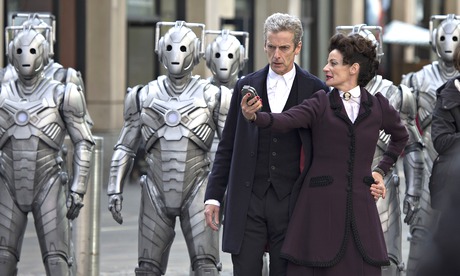
Channel 4 chairman Lord Burns has said the BBC should encrypt the iPlayer to ensure that it could only be used by licence fee payers as a first step towards the corporation moving toward a subscription model.
Burns criticised the corporation for being too wedded to the £145.50 licence fee and said it had ignored alternative forms of funding such as subscription – or "conditional access" – because it could "get away with it".
The Channel 4 chairman was speaking after BBC director general Tony Hall outlined his vision for the future of the corporation in the run-up to its charter renewal in 2016. Hall said he had "real confidence in the licence fee. Whatever reform people come up with, they need to answer that question, is there a better way [of funding it] than that 40p a day? I don't think there is."
But Burns said downward political pressure on the level of the licence fee meant it was unsustainable in the long term. He said the BBC should begin to look at alternative methods of funding, beginning with the iPlayer.
"You can either say you can only watch the iPlayer if you have a licence fee, or you can watch the iPlayer without a licence fee if you pay some money," said Burns, speaking at an industry conference in London.
"This is the first big opportunity to move towards conditional access – no pay, no play – but they won't even think about it because they think it is the first step towards subscription. They will not think about it because they are so wedded to the licence fee."
The BBC has fiercely resisted any moves towards subscription, saying it would cost £500m to implement and would lead to "first and second class" licence fee payers.
But Burns, who oversaw a review of the BBC's governance a decade ago as an adviser to the then culture secretary Tessa Jowell, said: "The licence fee is effectively a tax … and I am very pessimistic about the ability of the BBC to fund itself long term through a tax. I think the political process is just too difficult. Can you really imagine in 30 years time there will be a licence fee?"
James Purnell, the BBC's director of strategy and digital, said the BBC was "up for a discussion about the modernisation of the licence fee".
But he warned against charging a fee for the online delivery of BBC services. "Online delivery is the future of television, if we were to start charging a subscription that would be locking ourselves into a ghetto of the past," he said.
An estimated 500,000 UK homes do not have a television but watch BBC programmes on-demand on the iPlayer.
Hall said his proposals to open up the entirety of the BBC's schedules to outside programme makers, and allow the BBC's in-house production department to make shows for rival channels for the first time, would usher in an era of unprecedented competition.
The director general also said that making the corporation more financially efficient would not lead to a "low rent BBC". "My aim in all this work is a world-class BBC," he said. "Not a low rent BBC. Value for money is what matters – not to be the cheapest, but the most efficient for the quality we are trying to achieve."
Burns said Channel 4 would buy programmes from the BBC, but expressed concerns about the impact Hall's plans may have on the independent sector.
"If they are good enough and meet our remit, then of course [we would buy BBC programmes]. We already buy programmes from ITV," said Burns. "We of course have a very deep interest in maintaining a vibrant independent sector. I would be nervous if I thought this would work in a way that would squeeze that."

